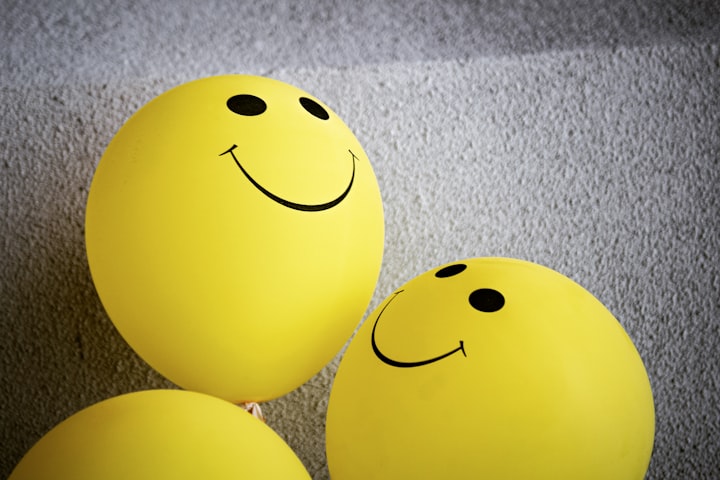I'll probably be on antidepressants for life - and that's OK
“Do you think you’ll be on medication for life?” “I don’t care. That is my honest answer.”

I watched this interview with Roman Kemp during my worst bout of depression in over a year and it struck a chord.
After 12 years on antidepressants – sertraline for the first five, and mirtazapine for the last seven, if you’re interested – I’d tried and failed for a second time to come off them.
I was at a point in my life where I’d felt stable for the longest single period arguably in those 12 years. I’d gone onto fluoxetine to deal with suffocating hayfever, which prompted a medication review at my GP surgery. I’d found that I was extremely lethargic and ravenously hungry, to the point of being unfillable, and I knew both of those medications increase those symptoms.
After taking stock of my mood and overall mental health, I suggested to my chemist that I try to wean off the mirtazapine. She agreed.
We took it low and slow. I’d tried to come off it in late 2020 (and truthfully, I can’t even remember why) and ended up experiencing such severe insomnia that I started taking them again. So I took it slower this time.
I weaned myself carefully off for six weeks, and felt incredible the whole time. After three check-ins with my chemist, we agreed at that point that I’d come off them completely. That was on a Thursday afternoon. The following bank holiday Monday, I stopped sleeping.
It’s just psychological, I reasoned. Push through. And I tried, but I felt myself heading down that same slippery slope. I felt more on edge. I was irritated more easily. My mood dipped to the point where it felt like a physical, crushing, soul-sucking weight on my chest.
The following Monday, I broke down while working from home over something that, with the beauty of hindsight, was completely insignificant. The physical sensation was overwhelming. Nothing was actually the matter, but I felt like I’d hit my lowest point in years. It only took a short phone call with another chemist to be put back onto the mirtazapine.
Over the course of the next few weeks, I started to perk up – it wasn’t instantaneous, but I started to sleep. I felt more comfortable being around people again. But for three full weeks, I was back in that all-too-familiar pit of feeling horrendous with nothing bad actually going on in life at that moment. One of the very few things I felt normal doing was going to the football. It’s one of the few things that makes me feel like myself, and a trip to Milan with the mags was the final boost I needed to shake off the depression demon.
It was hard not to feel like a failure after six amazing weeks weaning off the antidepressants. Beyond the increased appetite and occasional fatigue, they come with some minor side-effects that I’d rather not deal with, but they’re manageable.
But it wasn’t a failure. I just might need these tablets for the rest of my life. And that’s OK.
The more we talk about mental health, the more we reduce the stigma. But then conversely, stigma around antidepressants is rising. Doctors are seen as prescribing them gung-ho. They’re deemed unnecessary. Just eat well and go outside more, wellness wankers on Instagram tell you.
And yet I’ve heard all too many stories – from loved ones, not just abstractly – of how poorly coming off them unmanaged can be. One friend told me they came off them because they felt that it changed them as a person, and they didn’t like that – but when probed, the only change was a better mood. One friend said they were convinced they actually made you suicidal despite feeling that way themselves. One of the most important people in my life experienced a horrendous dip coming off them without working with their doctor on it.
We’re too reliant on them, the headlines cry.
But what’s the issue with being reliant on them if they work?
Surely I and many others are better off relying on something reliable than trying to muddle through without it?
By writing this piece, I want to contribute positively not only to the hugely important conversations around mental health but also to push back against the stigma around antidepressants. Because they help me and many others live.
Whether your mental health condition comes from nothing but a chemical imbalance or whether it’s triggered by a traumatic life event (I’ve experienced both and neither are fun), you shouldn’t be judged for using something that works. Of course, it’s not the only thing that can or does work, but everyone’s experience is a little bit different.
So why did I bother trying to come off them again? Call it a snap judgment after another day wheezing with hayfever symptoms. Call it overconfidence after a year of content. Call it the lure of a life away from antidepressants.
But I’m no longer longing for that life. I’m just looking forward to one I can enjoy, and for the foreseeable, that’s backed by my medication.
In the 12 years since I was formally diagnosed with depression and anxiety, I’ve wanted to write about it. But in a cruel irony, these mental health conditions affect my motivation and my confidence in speaking out.
I’m passionate about supporting mental health and eliminating the stigma around it and I find myself too often shouting about being open without actually doing it myself.
It feels extremely vulnerable to write this and put it out there, but it’s been 12 years in the making. And I’ve felt encouraged by a lot of excellent content I’ve seen recently; the Roman Kemp interview. That extremely powerful video from Norwich City. Two of my personal heroes, Dan Burn and Sean Longstaff, opening up about their own mental health and contributing to positive conversations.
I’d toyed with this while in the depths of this depression, but it’s so much easier to put down with the clarity of hindsight.
Don’t be ashamed to take antidepressants. Don’t stay silent. Check in with your loved ones.
About the Creator
Natasha Bougourd
I work in marketing for an exciting B2B technology company, and writing is my passion. On Vocal you can expect to see me cover topics including education, news & politics, entertainment (TV & film) and tech!






Comments
There are no comments for this story
Be the first to respond and start the conversation.